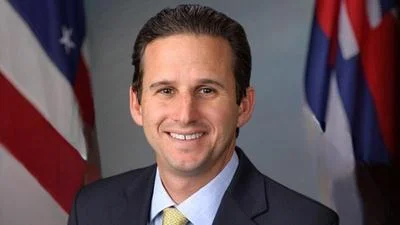I thank the Chairman for convening this hearing today.
We appreciate that the Subcommittee has decided to begin consideration of certain expired and expiring tax provisions, as this consideration is long overdue - businesses have been desperate for certainty in the tax law when attempting to make decisions that can help the economy grow.
However, many may view today’s hearing as actually increasing uncertainty for businesses and individuals that use these tax benefits. As we learned in our last hearing, so many of these benefits enjoy broad bipartisan support - their extension should not be difficult.
As we learned from the recent jobs report, our economy is struggling and job creation is lagging.
Unfortunately, proven job creation programs have not received adequate consideration this Congress. Press reports indicate that the highway conference may be stalled, and possibly gridlocked, and provisions on the President’s “To Do List" to create jobs have not made it to a vote.
The public is losing faith in Congress’ ability to act, and act quickly, to turn this economy around. Frankly, I don’t blame them. We are having a hard time finding agreement on a lot of things, but it’s important to remember that there are things we can do in this Committee that can help alleviate some of the pressures people are feeling, and the uncertainty facing businesses.
As we learned from the last Subcommittee hearing, so many expired provisions that are under consideration today enjoy broad, bipartisan support. In fact, many of us are lead sponsors of important job-creation provisions, including the New Markets Tax Credit, the R&D credit, the conservation easement credit and the list goes on. We have worked well together on these provisions, and we should now work to get them across the finish line.
I do appreciate the testimony from the witnesses today. Evaluation of temporary provisions is as important as evaluating all provisions in the tax code. There are a number of loopholes that can be closed, or provisions that provide windfalls to certain industries, that should be examined particularly closely. The temporary nature of a provision should not automatically make it more eligible for termination than some of the provisions in the code that are permanent. Many of these provisions were enacted on a temporary basis due to budgetary constraints - that does not automatically detract from the merit of these provisions.
But today we are talking about provisions that have already expired. Businesses, large and small, rely on these provisions when making investment decisions. We have allowed almost 18 months of the 112th Congress to pass without doing our job to move legislation providing extension of these.
I mentioned in detail at the last hearing we had on tax extenders a few weeks ago, just how important some of these extenders are to my district and my constituents. I won’t go into detail again, but will mention that Mr. Gerlach and I have a bill to make permanent the enhanced Conservation Easement incentive. It is one of the most successful tools we have to support preservation of open spaces and family farms-which protects our watersheds and ensures food security. Today it has 308 cosponsors, including Chairman Tiberi, and I wish we were marking that up today or better yet voting for it on the suspension calendar.
I couldn’t agree more with our Chairman that this Committee has a duty to ensure that the tax code is working to create jobs and grow our economy - it is an exercise that is necessary and takes time.
But when so much of the rest of Congress is gridlocked, this Committee can act quickly and in a bipartisan way to extend expired provisions that will help kick-start job creation and get this economy going again. I believe such legislation should include not only job-creating provisions that expired in 2011, but also proven job-creating provisions that were allowed to expire in 2010, such as Build America Bonds and the 48C advance manufacturing investment tax credit.
The Committee should engage in proper oversight and review of all tax provisions to identify those that are meritorious based on their economic performance and find ways to strengthen them and make them permanent, but this oversight should not come at the cost of inaction on important job-creation provisions.
It is my hope that the Committee will move to schedule a markup of these important provisions so we can get the ball rolling on their extension sooner rather than later - we should do all we can to push immediate investment in our economy, especially when there is a bipartisan path forward to doing so.








